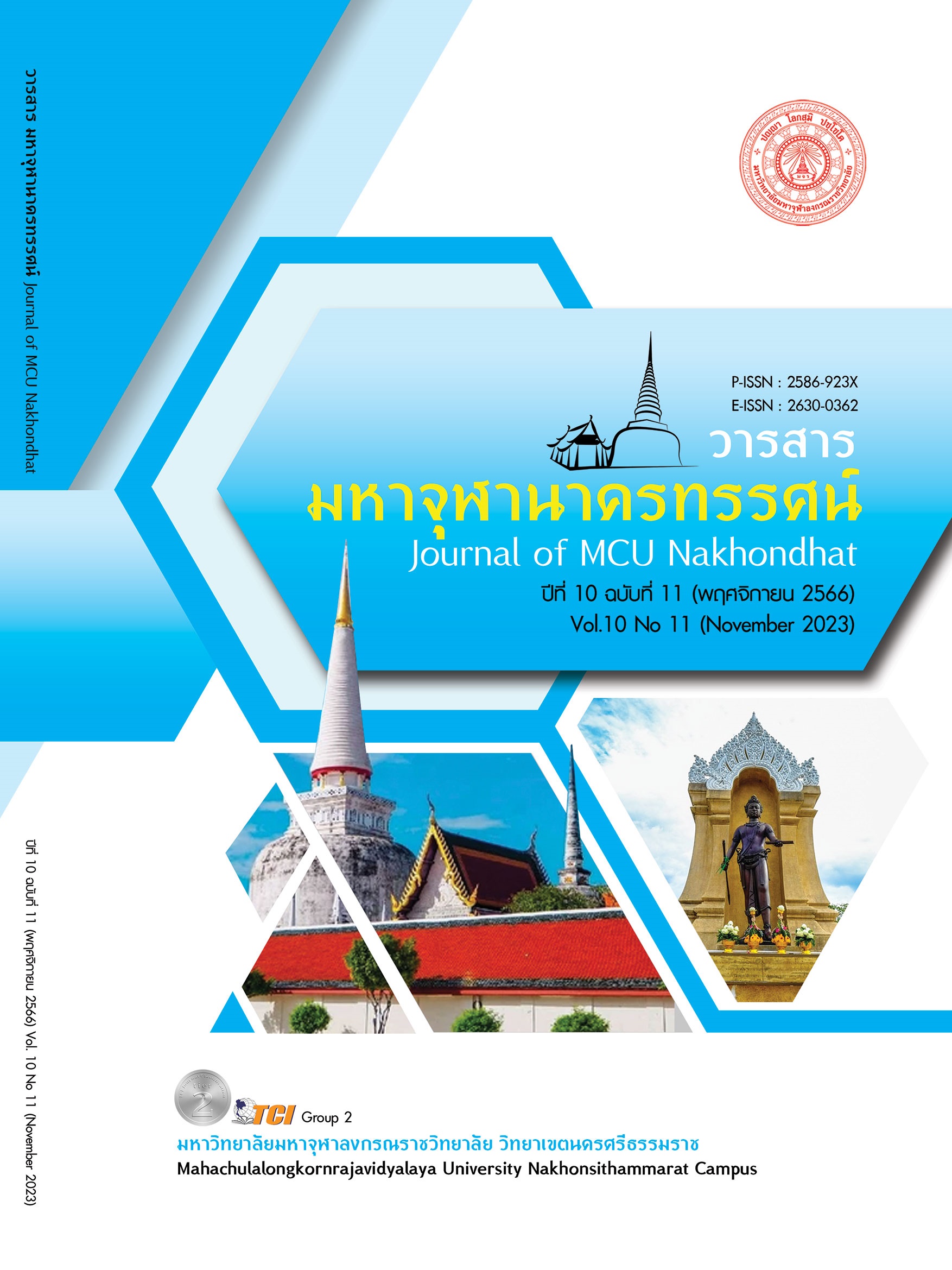A CURRICULUM EVALUATION FOR GRADUATE DIPLOMA PROGRAM IN TEACHING PROFESSION (REVISED CURRICULUM, B.E. 2562) FACULTY OF EDUCATION, RAJABHAT RAJANAGARINDRA UNIVERSITY
Main Article Content
Abstract
This research aims to evaluate the Graduate Diploma Program in Teaching Profession Curriculum (Revised curriculum, B.E. 2562), Faculty of Education, Rajabhat Rajanagarindra University, by applying the CIPP assessment model and standard criteria for graduate programs B.E. 2558, which consisted of the context, fundamental factors, process, and products. The sample consisted of 5 teachers responsible for the curriculum, and 23 instructors by selective sampling, 217 alumni and current students, and 217 entrepreneurs. The sample size was determined by using Krejcie and Morgan's table and the accidental sampling method was used. The instrument used for data collection was a curriculum evaluation form of Graduate Diploma Program in Teaching Profession (Revised Curriculum, B.E. 2562) for the teachers responsible for the curriculum, and a curriculum evaluation form of Graduate Diploma Program in Teaching Profession (Revised Curriculum, B.E. 2562) for the students. The validity was examined by analyzing the consistency of the evaluation items with the research objectives according to the opinions of experts, with a consistency between .80 - 1.00 and it was used to try out to collect data to determine suitability and possibility. Percentage, mean, and standard deviation were used for data analysis. The research findings were as follows: the opinions of teachers responsible for the curriculum, instructors, alumni and current students were consistent that the Graduate Diploma Program in Teaching Profession (Revised curriculum, B.E. 2562) in the aspects with the highest average were context, followed by products, fundamental factors, and the last aspect was the process. In terms of the further inquiry of the entrepreneurs' opinions, it was found that the overall product aspect was at a high level in both domains, namely 1) desirable graduate characteristics, and 2) satisfaction towards work performance.
Article Details

This work is licensed under a Creative Commons Attribution-NonCommercial-NoDerivatives 4.0 International License.
References
กระทรวงศึกษา. (2558). เกณฑ์มาตรฐานหลักสูตรระดับบัณฑิตศึกษาพ.ศ. 2558. เรียกใช้เมื่อ 29 มิถุนายน 2566 จาก http://www.mua.go.th/user/bhes/front_home/criterion58/criterion%20_m58.PDF
คณะครุศาสตร์. (2560). คู่มือกิจกรรมเสริมความเป็นครูหลักสูตรประกาศนียบัตรบัณฑิตวิชาชีพครูประจำปีการศึกษา 2562 คณะครุศาสตร์มหาวิทยาลัยราชภัฏราชนครินทร์. ฉะเชิงเทรา: คณะครุศาสตร์.
คณะครุศาสตร์. (2562). มคอ. 2 รายละเอียดหลักสูตรประกาศนียบัตรบัณฑิตวิชาชีพครู (หลักสูตรปรับปรุง พ.ศ. 2562). ฉะเชิงเทรา: คณะครุศาสตร์.
คทาวุธ กุลศิริรัตน์. (2561). การประเมินหลักสูตรครุศาสตรบัณฑิต สาขาวิชาวิทยาศาสตร์ทั่วไป (หลักสูตรปรับปรุง ปี พ.ศ. 2559) คณะครุศาสตร์ มหาวิทยาลัยราชภัฏราชนครินทร์. ฉะเชิงเทรา: คณะครุศาสตร์.
เจียรนัย ศิริสวัสดิ์. (2526). การประเมินหลักสูตรครุศาสตรมหาบัณฑิต สาขาวิชาการสอนภาษาไทย. ใน วิทยานิพนธ์ครุศาสตรมหาบัณฑิต. จุฬาลงกรณ์มหาวิทยาลัย.
ทิศนา แขมมณี. (2544). รวมบทความทางการประเมินโครงการ. กรุงเทพมหานคร: สำนักพิมพ์แห่งจุฬาลงกรณ์มหาวิทยาลัย.
พิมพันธ์ เดชะคุปต์ และพเยาว์ ยินดีสุข. (2558). การจัดการเรียนรู้ในศตวรรษที่ 21. (พิมพ์ครั้งที่ 2). กรุงเทพมหานคร: สำนักพิมพ์แห่งจุฬาลงกรณ์มหาวิทยาลัย.
มารุต พัฒผล. (2562). แนวคิดหลักการพัฒนาหลักสูตร. กรุงเทพมหานคร: ศูนย์ผู้นำนวัตกรรมหลักสูตรและการเรียนรู้.
วิชัย วงษ์ใหญ่. (2554). การพัฒนาหลักสูตรระดับอุดมศึกษา. (พิมพ์ครั้งที่ 2). กรุงเทพมหานคร: อาร์ แอนด์ ปริ้นท์ จำกัด.
สำนักงานคณะกรรมการการอุดมศึกษา. (2561). คู่มือการประกันคุณภาพการศึกษาภายใน ระดับอุดมศึกษา พ.ศ. 2557. กรุงเทพมหานคร: ภาพพิมพ์.
สำนักนายกรัฐมนตรี. (2559). แผนพัฒนาเศรษฐกิจและสังคมแห่งชาติ ฉบับที่ 12 (พ.ศ. 2560-2564). กรุงเทพมหานคร: สำนักงานคณะกรรมการ พัฒนาการเศรษฐกิจและสังคมแห่งชาติ.
สุคนธ์ สินธพานนท์. (2560). ครูยุคใหม่กับการการเรียนรู้สู่การศึกษา 4.0. กรุงเทพมหานคร: 919 เทคนิคพริ้นติ้ง.
Guili Zhang et al. (2011). Using the Context, Input, Process, and Product Evaluation Model (CIPP) as a Comprehensive Framework to Guide the Planning, Implementation, and Assessment of Service-learning Programs. Journal of Higher Education Outreach and Engagement, 15(4), 79.
Stufflebeam, D.L., & Shinkfield, A.J. (2007). Evaluation theory, models, and application. San Francisco: Jossey - Bess.


